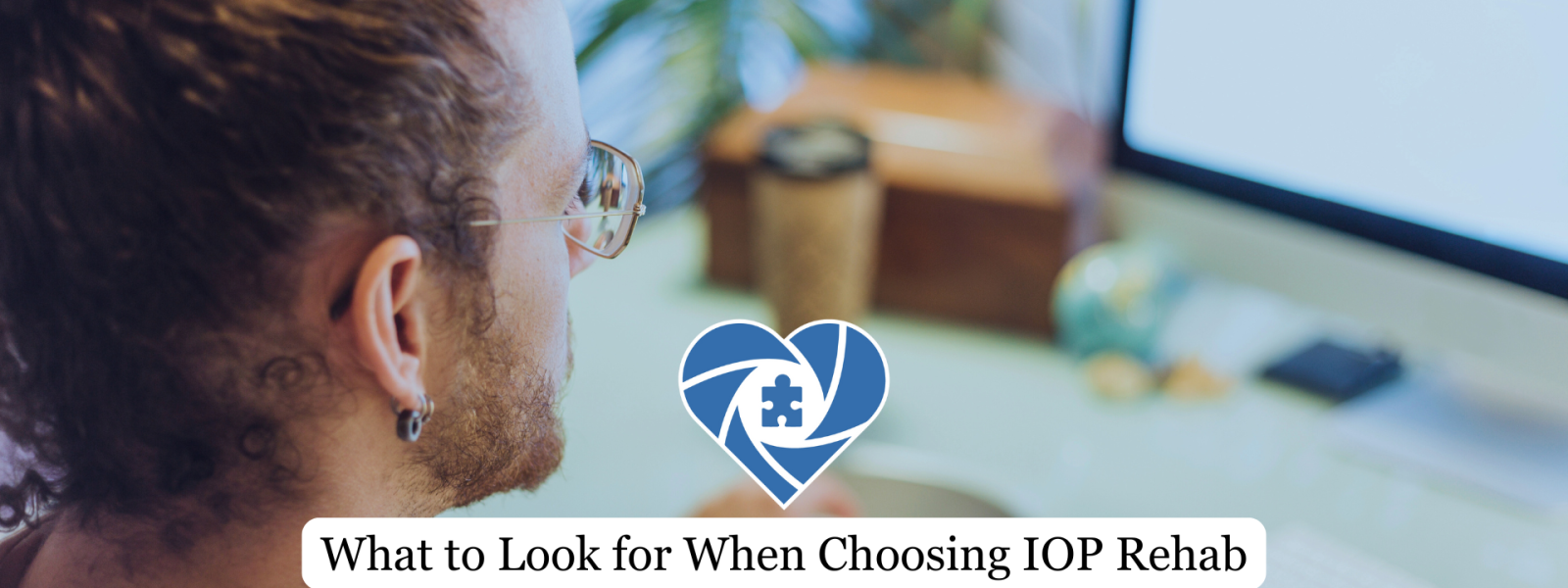Selecting the right Intensive Outpatient Program (IOP) is a critical step in the recovery journey. Not all programs are created equal, and the effectiveness of treatment can vary widely depending on the quality and suitability of the rehab. Understanding what to look for can ensure that individuals receive the best possible care tailored to their unique needs. This article will guide you through the essential factors to consider when choosing an IOP rehab.
Accreditation and Licensing
When evaluating an IOP rehab, the first thing to check is its accreditation and licensing.
- State Licensing: Ensure the program meets the regulatory standards set by the state in which it operates.
- National Accreditation: Look for certifications from reputable organizations such as The Joint Commission or CARF, which indicate adherence to high-quality care standards.
- Qualified Staff: Verify that the program employs licensed and experienced professionals, including therapists, counselors, and medical staff.
Accreditation and licensing are non-negotiable indicators of a program’s legitimacy and commitment to providing effective care.
Treatment Approach and Therapies
Evidence-Based Practices
A high-quality IOP rehab should use evidence-based treatment methods that are proven to be effective in addiction recovery. These include:
- Cognitive Behavioral Therapy (CBT): Helps individuals identify and change negative thought patterns and behaviors.
- Dialectical Behavioral Therapy (DBT): Focuses on managing emotions and improving interpersonal skills.
- Motivational Interviewing: Encourages individuals to find their intrinsic motivation for recovery.
In addition to these therapies, many programs offer holistic approaches such as mindfulness, art therapy, or yoga to support overall well-being.
Individualized Treatment Plans
No two recovery journeys are the same, and the program should create personalized treatment plans tailored to each individual’s needs. Factors to consider include:
- Co-occurring mental health disorders.
- Specific substance abuse history.
- Family dynamics and support systems.
Customized care ensures that treatment is relevant and effective for the person seeking help.
Flexibility and Scheduling
One of the primary benefits of IOPs is their flexibility. When choosing a program, assess whether its schedule aligns with personal or professional commitments.
- Evening and Weekend Options: Many programs offer sessions outside of standard working hours to accommodate work or school responsibilities.
- Location Proximity: Select a program that is conveniently located to minimize travel time and disruptions to daily life.
Flexibility allows individuals to maintain their routines while receiving comprehensive care.
Support for Co-Occurring Disorders
Many individuals struggling with addiction also face co-occurring mental health issues such as anxiety, depression, or PTSD.
- Dual Diagnosis Treatment: Choose a program that offers integrated care for both addiction and mental health disorders.
- Qualified Professionals: Ensure the staff includes specialists trained in addressing co-occurring conditions.
Effective dual diagnosis treatment addresses the root causes of addiction, reducing the risk of relapse.
Family Involvement
Family involvement can be a powerful asset in the recovery process. Look for programs that encourage loved ones to participate through family therapy or educational workshops.
- Rebuilding Relationships: Programs that focus on repairing trust and improving communication within families can strengthen recovery efforts.
- Educating Loved Ones: Families learn about addiction, recovery, and how to support their loved one without enabling harmful behaviors.
A strong family support system can enhance the individual’s recovery and foster long-term success.
Aftercare and Relapse Prevention
Recovery doesn’t end when the program does. Choose an IOP that offers robust aftercare and relapse prevention services to support long-term sobriety.
- Alumni Programs: Many rehabs offer alumni groups or regular check-ins to maintain engagement.
- Relapse Prevention Plans: Look for programs that help individuals develop strategies to identify triggers and navigate high-risk situations.
- Continued Therapy: Some IOPs provide ongoing access to individual or group counseling sessions.
Strong aftercare services ensure individuals have the tools they need to sustain their recovery.
Cost and Insurance Coverage
The cost of treatment is often a deciding factor when choosing an IOP rehab.
- Insurance Verification: Check if the program accepts your insurance plan and what portion of the treatment cost will be covered.
- Payment Plans: Many programs offer flexible payment options to make care more accessible.
- Transparent Pricing: Ensure the rehab provides a clear breakdown of costs upfront to avoid unexpected fees.
Balancing affordability with quality is crucial to finding the right fit for your needs.
Program Reputation and Reviews
Researching the reputation of the IOP rehab can provide valuable insights into its effectiveness.
- Online Reviews: Look for testimonials on trusted platforms like Google, Yelp, or addiction treatment directories.
- Success Rates: Some programs share their success metrics, which can be a helpful indicator of quality.
- Referrals: Ask for recommendations from trusted healthcare professionals or individuals who have completed similar programs.
A strong reputation often reflects a program’s dedication to helping individuals achieve recovery.
Questions to Ask Before Choosing an IOP Rehab
When evaluating potential programs, consider asking the following questions:
- What is the program’s approach to treating addiction?
- How long does the program typically last?
- What types of therapies and activities are included?
- How is progress measured and communicated to participants?
- What resources are available for family members?
These questions can help clarify whether the program meets your expectations and needs.
Conclusion
Choosing the right IOP rehab is a critical decision that can greatly impact the success of your recovery journey. By prioritizing factors such as accreditation, evidence-based practices, flexibility, and family involvement, you can find a program that aligns with your unique needs and goals. Remember to research thoroughly, ask questions, and trust your instincts when making your choice.
Recovery is a challenging but rewarding process, and the right IOP rehab can provide the foundation for lasting sobriety and a healthier, more fulfilling life.





